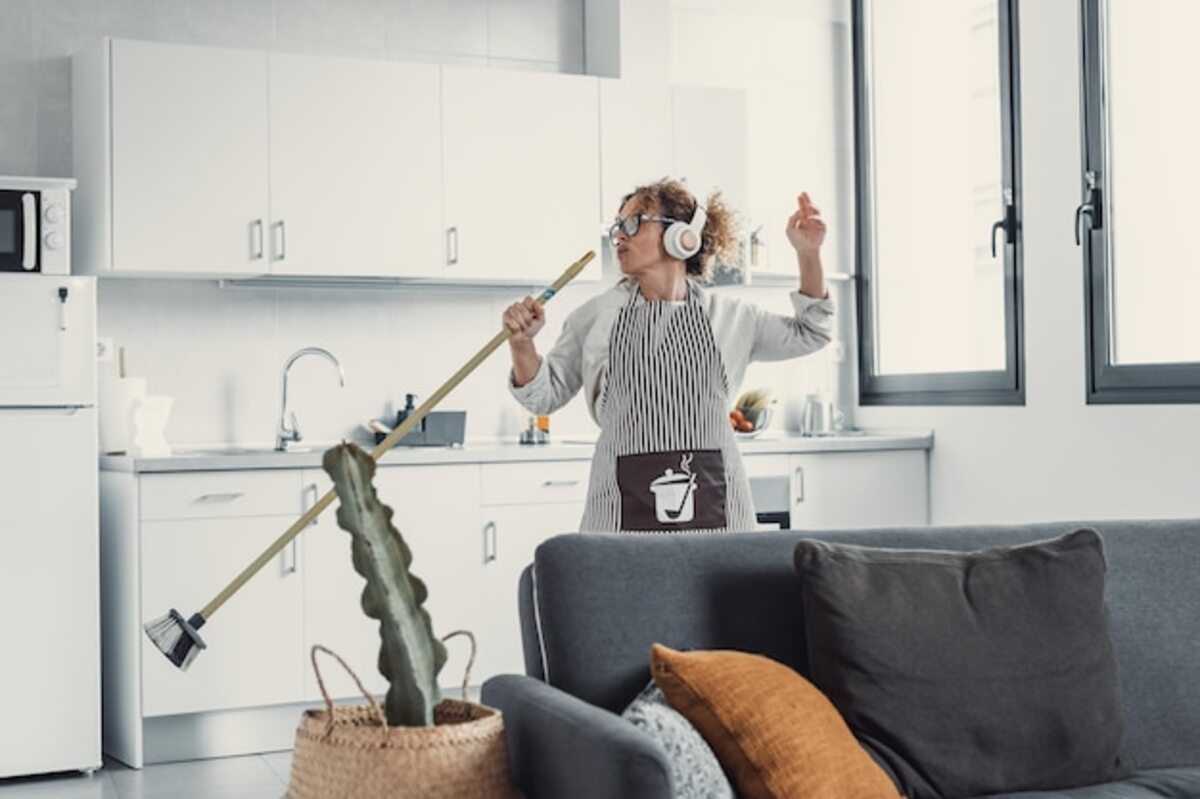Maintenance rituals for a always healthy home

Maintenance rituals for a consistently healthy home are essential to ensure a clean and harmonious environment. In this article, you will discover simple practices that you can incorporate into your daily routine, helping you prevent issues and maintain the health of your home. From deep cleaning to caring for outdoor spaces, each ritual is an investment in family well-being. Dive into these practical tips and transform your house into a healthy refuge!
1. The importance of regular cleaning: beyond aesthetics
Regular cleaning at home goes far beyond a mere aesthetic issue; it is a fundamental practice to preserve the health and well-being of all inhabitants. Clean and disinfected surfaces not only create a visually pleasant environment but also reduce the risk of diseases by eliminating bacteria, viruses, and allergens that can proliferate in neglected spaces. By establishing daily or weekly cleaning rituals, a safe environment is fostered where families can relax and enjoy without worrying about invisible contaminants that could affect their health.
Additionally, maintaining a regular cleaning routine can have significant psychological benefits. An organized environment can reduce stress and anxiety, promoting a positive mental state. The perception of a clean home is associated with a greater sense of control and emotional well-being. Therefore, dedicating time to cleaning not only physically improves the space in which we live but also nurtures our mind and spirit, turning our home into a refuge where we feel protected and renewed every day.
2. Disinfection: protecting your family from germs
Disinfection is a fundamental pillar in creating a healthy environment for your family. Germs, bacteria, and viruses can lurk in the most unexpected corners of your home, from kitchen surfaces to the objects we touch daily. Implementing a regular disinfection ritual not only helps eliminate these pathogens but also provides a sense of security and well-being. Using appropriate disinfectant products and following the manufacturer's instructions will ensure effective cleaning without compromising the health of your loved ones.
Additionally, it is crucial to pay attention to areas that often go unnoticed but are potential hotspots for contamination, such as doorknobs, light switches, and remote controls. Incorporating disinfection into your weekly routine can be as simple as spending a few minutes cleaning these surfaces with a damp cloth and an effective disinfectant. By doing so, you not only protect your family from contagious diseases but also foster an environment where everyone can feel comfortable and safe. Remember that every small effort counts in the mission to maintain a consistently healthy home.
3. Natural ventilation: the power of fresh air at home
Natural ventilation is one of the most powerful rituals for maintaining a healthy home. Allowing fresh air to circulate through indoor spaces not only helps eliminate unpleasant odors but also reduces the buildup of moisture and pollutants in the environment. Opening windows and doors strategically during the daytime allows outside air to purify your home, promoting a fresher and more energizing atmosphere. Additionally, this simple practice can help improve indoor air quality, which is especially important during times when heating or cooling systems are in use.
Incorporating natural ventilation routines into your daily life can be as simple as spending a few minutes each morning opening the windows and letting the air flow freely. Consider setting specific times to ventilate different areas of your house, ensuring that all rooms receive an adequate dose of fresh air. You can also take advantage of cross breezes by opening opposite windows to maximize circulation. Remember that this ritual not only benefits the physical health of the occupants but also creates a more emotionally pleasant environment, enhancing your overall well-being at home.
4. Maintenance of appliances for an extended lifespan
The maintenance of appliances is a fundamental practice to ensure their efficiency and prolong their lifespan. These devices are essential allies in our daily routine, so dedicating time to their care not only helps prevent breakdowns but also contributes to more responsible energy consumption. From cleaning filters in air conditioners and vacuum cleaners to descaling coffee makers and kettles, every small effort can make a big difference. Performing these tasks regularly not only optimizes the appliance's performance but also ensures they continue to operate safely and effectively.
In addition to regular cleanings, it is essential to review the user manuals to follow the manufacturer's specific recommendations. Many appliances have detailed instructions on proper preventive maintenance and recommended intervals for performing it. Implementing rituals such as unplugging devices when not in use or checking electrical connections will help avoid bigger problems. Ultimately, investing time in the care of your appliances is a smart strategy that results in a healthier home and significant savings in the long run.
5. Pest control: prevention is better than regret
Pest control is a fundamental aspect of home maintenance, as the presence of insects or rodents not only affects aesthetics but can also compromise your family's health. Prevention is key; small changes in your daily habits can make a difference. For example, keeping food stored properly and sealing cracks or gaps in the walls are simple measures that make it harder for these unwanted visitors to gain access. Additionally, regular use of natural products like essential oils or eco-friendly traps can help keep pests away without jeopardizing your well-being.
Another important element in pest prevention is maintaining the outdoor environment. Keeping your garden clean and tidy not only beautifies your home but also eliminates potential hiding spots for insects and rodents. Collecting fallen leaves, controlling excessive plant growth, and ensuring there is no standing water are essential practices to avoid larger problems. Implementing a weekly inspection ritual both inside and outside your home will allow you to detect any early signs of infestation and act quickly before it becomes a regrettable situation. A healthy home starts with constant attention to details, including effective pest prevention.
6. Garden and green area care: health from the outside
The care of gardens and green areas not only enhances the aesthetics of a home, but also plays a crucial role in the health and well-being of its inhabitants. A well-maintained outdoor space promotes biodiversity, attracts pollinators like bees and butterflies, and creates a healthier microclimate around your home. Investing time in the care of your plants and shrubs can improve air quality, reduce stress, and encourage an active lifestyle by inviting outdoor enjoyment. Additionally, green areas can be a refuge for meditation and relaxation, contributing to optimal mental health.
Implementing regular rituals for garden maintenance involves simple tasks such as proper pruning, efficient watering, and organic pest control. These practices not only ensure that your plants thrive properly but also prevent larger problems that may arise from neglect. Consider establishing a small vegetable garden or an area with native plants; this will not only beautify your surroundings but also foster a deeper connection with nature. Ultimately, dedicating time to care for outdoor spaces is an effective way to cultivate health from the outside in, creating a truly healthy home for all its occupants.
7. Organization of space: how order improves your well-being
The organization of space is a fundamental pillar for cultivating a healthy and balanced environment at home. An orderly environment not only facilitates cleaning but also reduces stress and anxiety. When every object has its designated place, distractions are minimized and a sense of calm is promoted. The visualization of a clear space can be therapeutic, as it allows us to focus on what really matters, enhancing our productivity and emotional well-being. Moreover, maintaining order in our living spaces contributes to physical health by preventing the accumulation of dust and allergens. An organized home allows for proper air circulation and facilitates access to the cleaning products necessary to maintain hygiene. Implementing simple rituals like getting rid of unnecessary objects or dedicating a few minutes daily to tidying up can radically transform our environment. Ultimately, a well-organized home is more than a luxury; it is a direct investment in our quality of life and overall well-being.
8. Family routines to maintain a healthy home together
Establishing family routines to maintain a healthy home is an excellent way to promote collaboration and a sense of responsibility among all household members. One of the most effective practices is to assign specific tasks to each member, ensuring that everyone contributes to the well-being of the shared space. For example, a day of the week can be designated for deep cleaning areas like the kitchen and bathroom, while other daily tasks, such as sweeping and picking up toys, can be rotated among members. This division of labor not only helps keep the home organized but also teaches children about the importance of teamwork and caring for the environment.
In addition to household chores, incorporating family wellness rituals can strengthen emotional bonds and promote healthy habits. Spending time on activities like cooking meals together or exercising outdoors not only contributes to a clean environment but also encourages balanced eating and an active lifestyle. These routines can include family dinners where everyone participates in preparing healthy foods or going for a walk after dinner. In this way, each activity becomes an opportunity to create memories and reinforce the idea that taking care of the home is a shared responsibility that benefits everyone.



